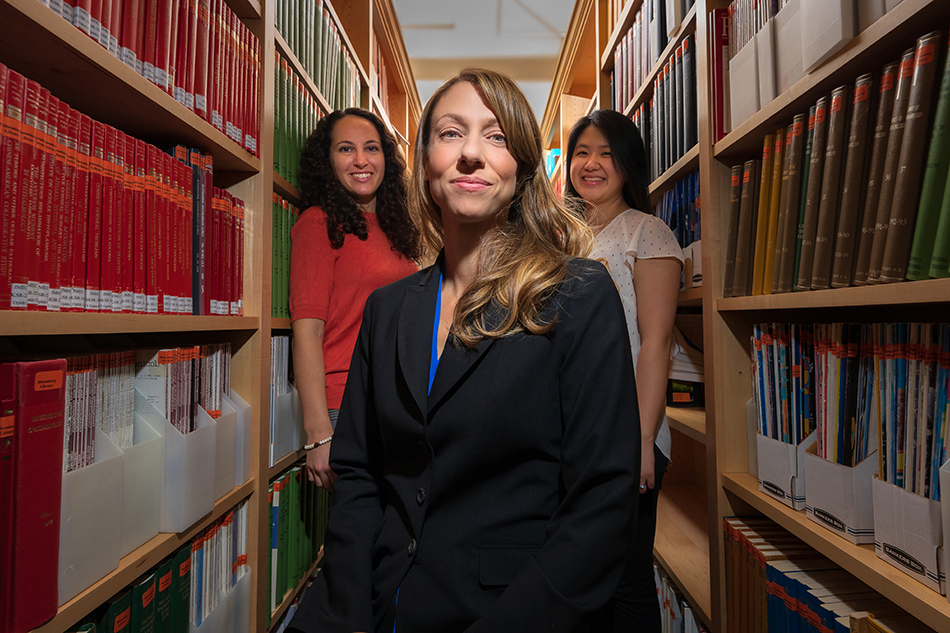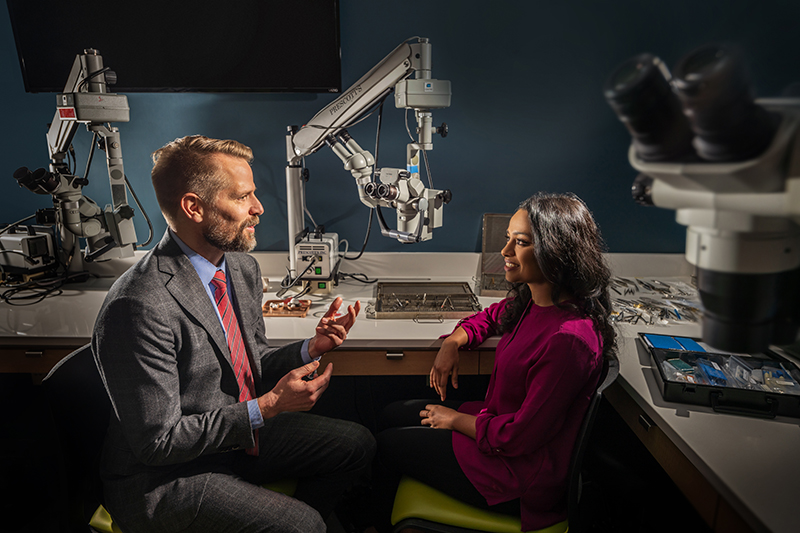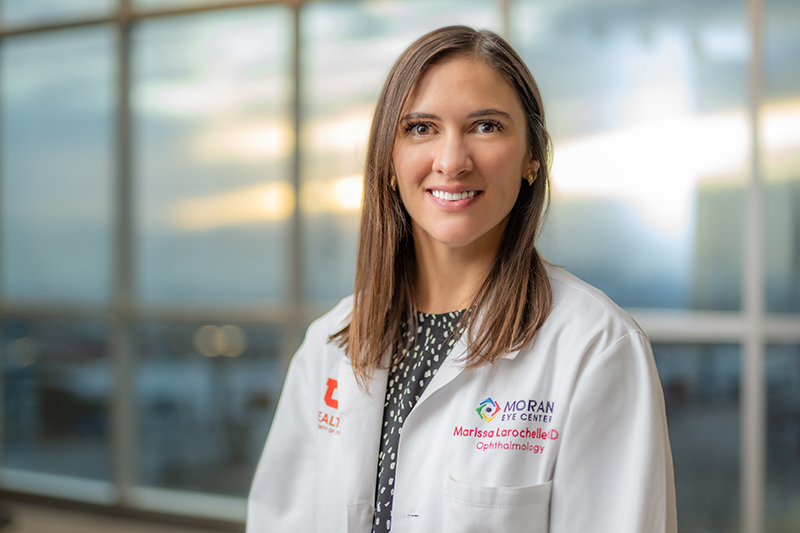
A new, interactive ophthalmology curriculum set to roll out in July at the John A. Moran Eye Center arrives thanks to a unique development process driven by residents.
"The trend away from traditional 'sage-on-the-stage' lectures to interactive learning is not unique," explained Moran Vice Chair of Education Jeff Pettey, MD. "But the way we went about creating department-wide change speaks volumes about our approach to education."

The approach? Asking residents what they needed to be successful and supporting their involvement in making it happen. At about the same time residents started expressing a desire for more active learning, faculty members were also speaking up for increased interactive methods.
"Residents and faculty both expressed the need for more dynamic educational exchanges," said Rachel G. Simpson, MD, Moran’s associate residency program director. Simpson, a former Moran glaucoma fellow and now an assistant professor of ophthalmology and visual sciences, led the formation of a working group of residents, fellows, and attending physicians.
Working for a New Learning Experience
The group, named the Moran Ophthalmology Learning Experience, reinforced its proposed changes by presenting evidence-based techniques for interactive learning during weekly Grand Rounds.
A majority of the residents also volunteered as liaisons to each subspecialty division to assist with the transition. They collaborated with faculty to restructure lectures—identifying topics that lent themselves to in-classroom activities, such as case- and image-based lessons. Other things, such as landmark research studies, were reassigned as homework. The changes were designed to allow residents to concentrate on more in-class group activities—such as studying photos, giving possible diagnoses, and interpreting MRI scans to offer appropriate treatments.
"The opportunity to redo the long-established format is truly exciting," said Simpson. "Most residents are coming straight from four years of medical school, where competitive programs make the most of technology and active learning. They’re used to podcasts, online options, and more of a case-based learning system."
While Simpson and her committee acknowledge it is a heavy lift for faculty to change long-standing teaching practices, they are focused on the lasting value change will bring.
"We have some of the country’s top leaders in their specialties here," she said. "It’s one thing to have them lecture to you for 45 minutes, but it’s another to have them with you for two hours and walk you through cases and learn about why they made the decisions they did. This is why residents come to Moran."
New Lesson Plan Approach

Marissa Larochelle, MD, was the first Moran faculty member to revamp a traditional lecture into a more interactive format. Her lesson plan is below.
Lecture Topic: Infectious Posterior Uveitis, Including:
- Viral retinitis (HSV, VZV, CMV)—includes ARN, BARN, PORN and CMV retinitis
- Syphilis—ASPPC
- Toxoplasmosis
- Tuberculosis
- Endogenous endophthalmitis (bacterial, fungal)
- Neuroretinitis/Bartonella
- Toxocariasis
- Rare entities: West Nile, DUSN, onchocerciasis, Lyme, cysticercosis
Assigned Pre-Work:
- General review article
- Lecture by Albert T. Vitale, MD, hosted on Moran CORE website
- For the rare entities: Please pick any two and read the EyeWiki page
- Bartonella review
- Bonus read: Medical malpractice in uveitis
Class Format:
- Start with a short quiz to test your knowledge on pre-work
- Interactive cases
- Resident-led explanations
- Clinical pearls
- Clarifications and review of salient points